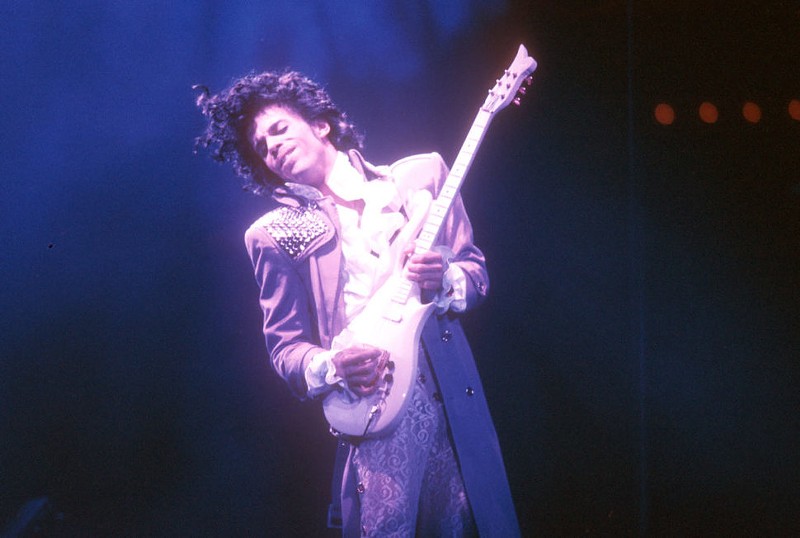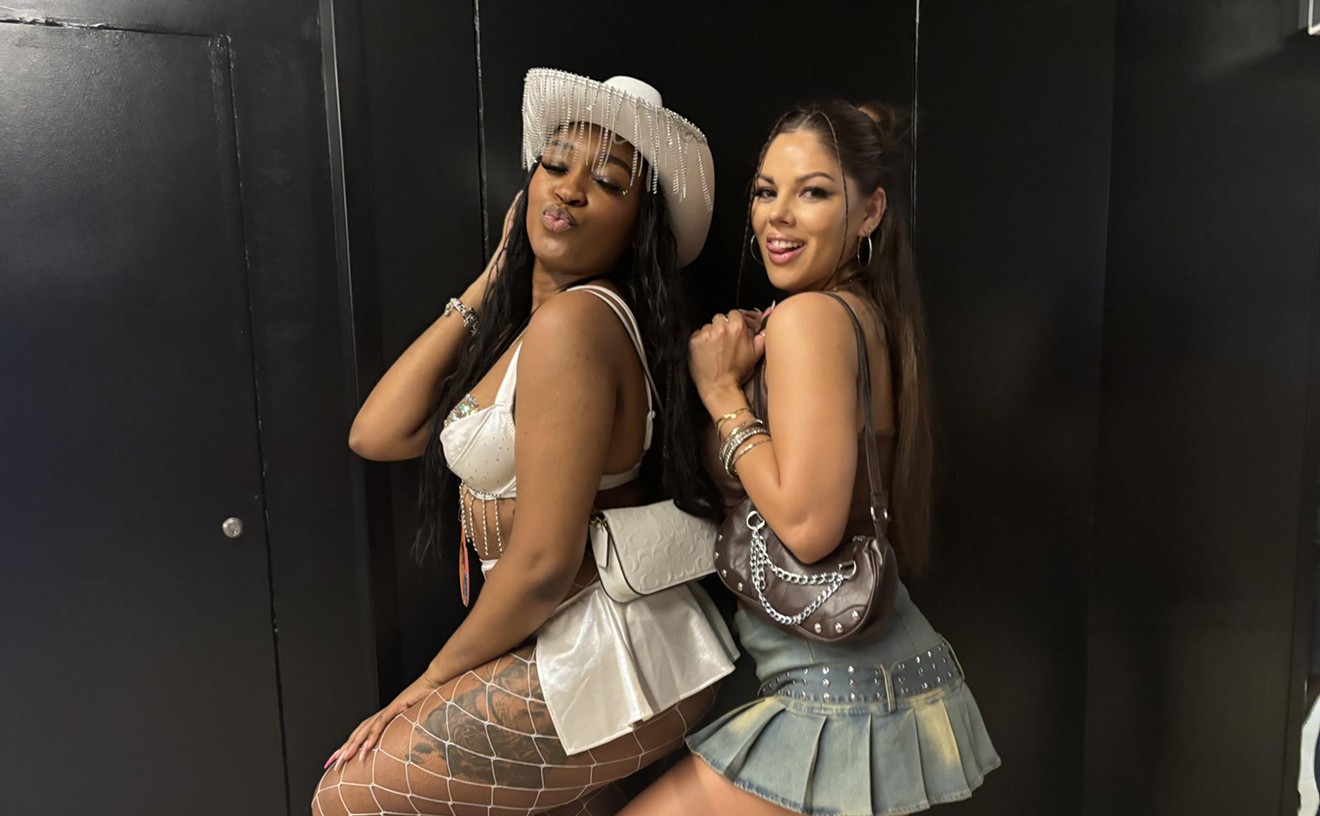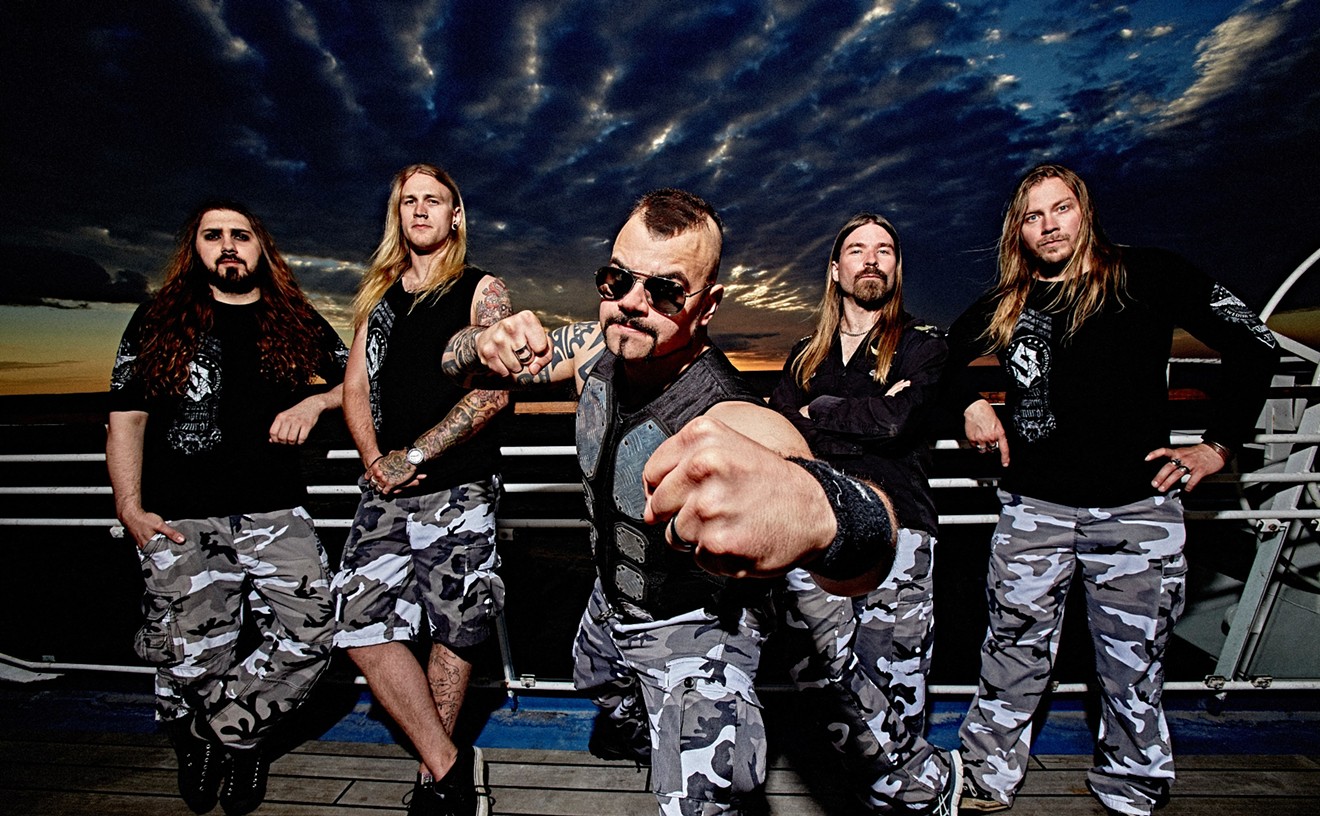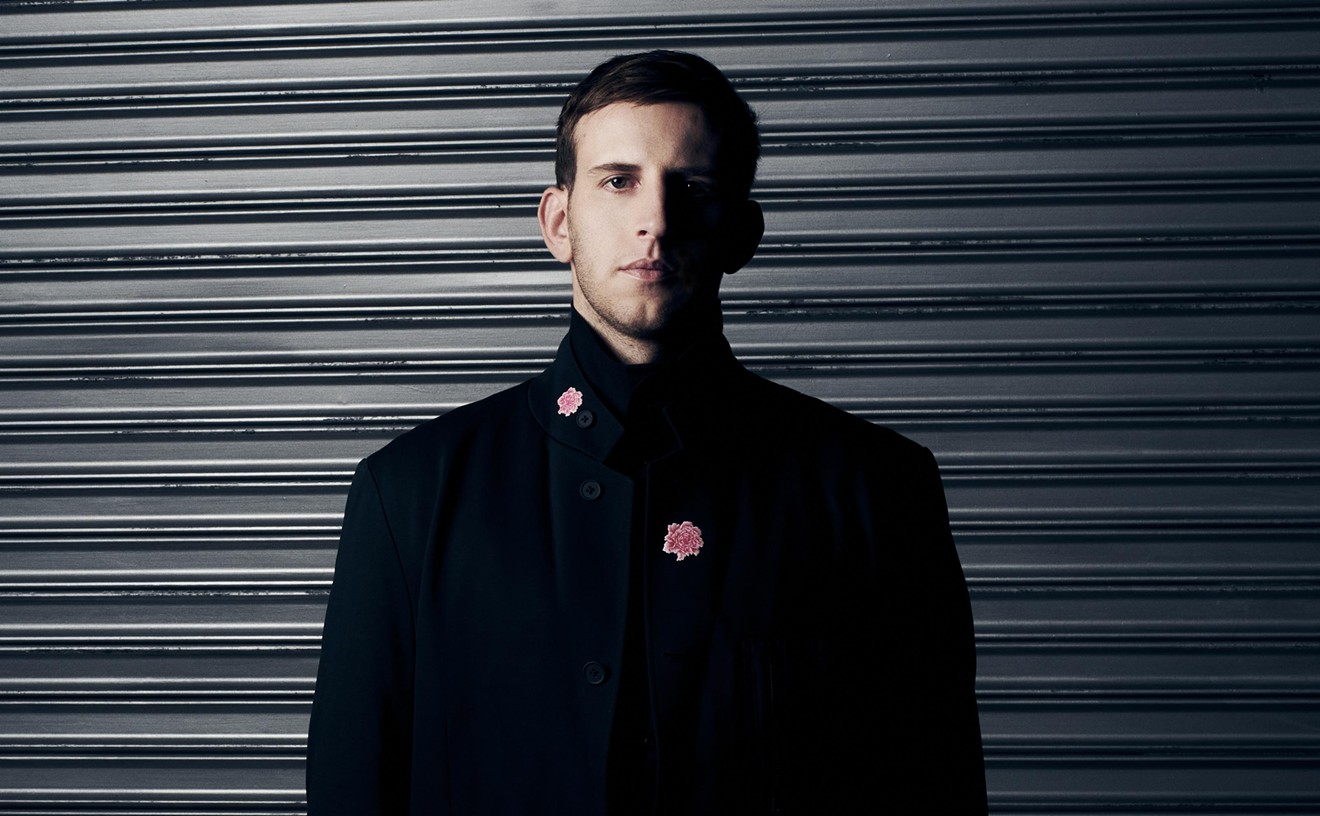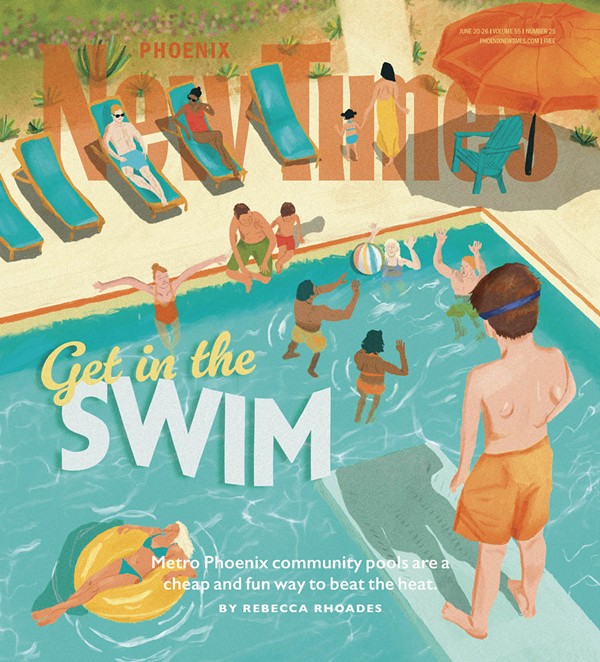Of all the classic albums hyped to the moon and back, the one I've never doubted is "Purple Rain."
Calling Prince's sixth album, which turns 40 on Tuesday, "seminal" isn't nearly strong enough — it's a transformative record according to every single available metric. Critic Kurt Loder sublimely noted that the album emanates from an "extraterrestrial musical dimension where black and white styles are merely different aspects of the same funky thing." Prince effortlessly regards electronic music, rock, funk, soul and even gospel with the same reverence and overt flexibility, blending genres in a way that the only thing that mattered is how they made you feel utterly alive.
And speaking of feelings, the record isn't just about love and lust like so many other albums of the day (even as it's very much about those things). It's about a certain kind of despair and longing — legendary critic Robert Christgau described it as "ingratiatingly unsolipsistic" — and Prince used these reality-bounding soundscapes as odes to people and feelings so much bigger than he could ever be. He is, it would seem, continually transformed in the eyes of love itself.
Plus, if absolutely nothing else, "Purple Rain" is endlessly and undeniably catchy, and you can mark your life by before and after you heard songs like "Let's Go Crazy" and "I Would Die 4 U" for the very first time.
While I adore "Purple Rain" for all of those reasons, I mostly love it because it's this deeply weird, borderline nerdy record.
Sure, Prince is very much this motorcycle-riding lothario-poet across the entire album. But there's something else here: No one can tell Prince what to do ever, and that unwavering commitment to himself and his vision (perhaps as a really compelling counter to those unsolipsistic tendencies) created a record that's novel not just because it absolutely smashes new ground. No, it's fresh and novel because it's unwaveringly how Prince sees himself and the world, and how committed he was to capturing that dynamic with the utmost charisma and unavoidable power.
"When Doves Cry" is a signature song amid a record packed with unskippable jams. Its catchiness comes despite the song having no actual bassline, and if you know Prince's music (and really dance music of 1984 in general), you instantly recognize that bizarre choice. But for Prince, it was all about making a very obvious, potentially unpopular choice and doing so to honor the song and the moment or spirit that he was trying to capture.
The end result is a kind of anti-love song, or a song about how you've noticed this love-sized hole in your life. Or, how we tend to build lives and machinery around one another, and how that traps us in a pattern where love can only be smothered by doubt and anxiety. (In that sense, the missing bassline feels like the perfect musical choice.)
It’s a stark, sexy song that gets you into Prince's multifaceted frame of mind, and lets you see the elegant and complicated ways that he saw the world — a world, it seems, where beauty and heartache are true companions. You can see some of those same ideas and energies in other tracks, too.
Like how Prince filled "I Would Die 4 U" with endless religious imagery and messaging, and how he views romance and spiritual ecstasy as bullet points on the same spectrum of humanity. Or how "Baby I'm a Star" is as much a declaration as a critique of pop stardom, and how not knowing the difference (and dancing all the same) is the way in which Prince specifically can mess with our heads.
Meanwhile, "Computer Blue" seems like it'd be a more "straightforward" song. It's meant as a kind of taunt to two would-be lovebirds (specifically, Apollonia and Morris Day in the "Purple Rain" film, but more on that oh-so-shortly). And, to an extent, it's a kind of visceral, un-evolved part of Prince peeking out. But it's also not straightforward whatsoever. The theme of the song is as much about the titular machinery as much as it is dealing with jealousy and romantic uncertainty. It's Prince very much coming to terms with own musical experimentations, and how he finds himself struck between the organic nature of his early work and the increasing influence and significance of electronic music.
He's not tortured, per se (although maybe he is), but he's clearly aware of the way the process makes him feel. And that strikes him as deeply as any romantic entanglement, and in that we see how Prince regards people and art and the connection he feels and how it all offers him the same level of joy and anxiety. Prince isn't just a musician, but he exists through his music, and "Computer Blue" is our most robust dive into the man in a record that's all about Prince's process of engaging with the world. It's only a shame we didn't get the 14-ish-minute original.
For some folks, "Purple Rain" is often more about the music than the record, which is a fair enough preference. You'd need an entire series of longform essays to properly delve into that masterpiece of delightfully cheesy '80s cinema, but there are a few points worth making. For one, as connected as the film and record are, I think you can totally enjoy one without the other (at least, the record without seeing the film). I think it speaks to the way Prince viewed the entire process, and how both of them are separate entities with flaws and power alike (which, ironically enough, is the reason they work so damn well together). That core approach informs some especially vital aspects of the film.
Namely, that Prince called himself "The Kid" — he wanted to truly distinguish his record and film "selves" in a way that not only respected the two products but played into certain storytelling tropes to create something that's either a fable or not entirely just his story (even as it very much is). We also get to see Prince deliver some of the finest, most personally tailored dialogue ever committed to film. Gems like "For starters, you have to purify yourself in the waters of Lake Minnetonka" is purely Prince-ian for 1. the overt cheese (that lands, honey); 2. the ongoing commitment to Minnesota; and 3. the joy of making something significant that only he could ever actually say. Plus, this film is as much about Prince's life story as it is a vehicle for Apollonia and Morris Day — it's not enough to be the star, he has to fill his world with bright and pretty things that make everyone look good.
And there are heaps more reasons why the "Purple Rain" film and record are a little bit weird but unwaveringly and undeniably Prince to their absolute core. How it very much is a pop record above all else, and how Prince would move onto even more experimental fare with subsequent albums. (In that sense, "Purple Rain" is like an introduction of sorts but Prince also bidding us adieu.) Or, how the record is informed by "color theory" — specifically, red skies and blue skies (the good and bad of life) make purple, which is about the end times and being with your lover and/or god.
There's also how the film ends with a rather uplifting tone — The Kid is a hit and he's made peace with his terrible father — which is both a little hackneyed but also the kind of thing Prince would let happen if he had layers to separate himself. Even the title track, which comes at the very end — at nearly nine minutes in length, it's like a glorious sampler platter of the previous record and also a final sensual jaunt into newfound peace and understanding. Shoot, even riding a purple motorcycle just smacks of nerdy wish fulfillment in the very best way.
At no point in this article (or in the rest of my life, really) has nerdy ever been slung as an insult. Rather, it's an awareness of one's self, the things you truly love and how to live your life in celebration of that joy. For Prince, it wasn't "Star Trek" or "Galaga" but things like self-love, romance, family, acceptance, integrity, faith and much more. It's a record and film (and something entirely not those things) about the power of love to clear life’s obstacles and uncertainties alike and allow yourself to understand what really matters on our hunk of rock. It's a statement of the undying soul and an ever-shifting sense of humanity, and how we can balance those things to lead an existence worth a damn.
Above all else, the film and record are a shared declaration of living in the world with integrity, courage and joy (and the maybe the right kind of leather jacket) when that very prospect is often quite the drag.
"Purple Rain" has been essential and definitive since it debuted 40 years ago, and we're all just perpetually basking in its shimmering purple hues.
[
{
"name": "Air - MediumRectangle - Inline Content - Mobile Display Size",
"component": "18478561",
"insertPoint": "2",
"requiredCountToDisplay": "2"
},{
"name": "Editor Picks",
"component": "16759093",
"insertPoint": "4",
"requiredCountToDisplay": "1"
},{
"name": "Inline Links",
"component": "17980324",
"insertPoint": "8th",
"startingPoint": 8,
"requiredCountToDisplay": "7",
"maxInsertions": 25
},{
"name": "Air - MediumRectangle - Combo - Inline Content",
"component": "16759092",
"insertPoint": "8th",
"startingPoint": 8,
"requiredCountToDisplay": "7",
"maxInsertions": 25
},{
"name": "Inline Links",
"component": "17980324",
"insertPoint": "8th",
"startingPoint": 12,
"requiredCountToDisplay": "11",
"maxInsertions": 24
},{
"name": "Air - Leaderboard Tower - Combo - Inline Content",
"component": "16759094",
"insertPoint": "8th",
"startingPoint": 12,
"requiredCountToDisplay": "11",
"maxInsertions": 24
}
]

